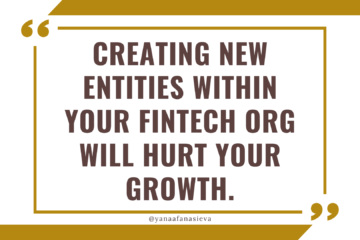What is Regulatory Capture and How Bill Gurley Went All-in Calling Out Brian Armstrong and Sam Altman
I have been thinking about regulatory capture and how it impacts my own relationships with regulators for a while, but only after hearing Bill Gurley speak about it at the All-in Summit in LA in September 2023. I felt I got sufficient clarity. His speech was unbelievable and ended with a 5-minute standing ovation. It is supposed to be posted on Twitter / X.com (I strongly recommend watching it, it’s totally worth it intellectually and incredibly funny)! If you don’t know Bill Gurley, he is a legendary VC investor. For example, he was one of the earliest and most influential investors in Uber, and an early investor in Snapchat, Slack, Airbnb, Zillow, OpenTable, and Twitter, among others. He has a blog Above the Crowd on topics related to startups, venture capital, and market dynamics, advocating for better governance practices in the tech industry, particularly in the context of startups and their boards of directors.
But more generally – what’s a regulatory capture?
Regulatory capture is a situation in which a regulatory agency, created to oversee a particular industry, becomes dominated by that industry and acts in the interests of a few actors, who get preferential treatment. As a result, the agency acts in the interests of a few players at the expense of the public interest.
There are many ways it can occur.
One of the scenarios is the “revolving doors” when the industry hires former regulators to work for them. These former regulators will then have inside knowledge of how the agency works and can use that knowledge to influence the agency’s decisions.
The industry can also try to influence regulators through lobbying, trying to persuade regulators to make decisions or issue interpretations and other circulars that are favorable to specific players. This scenario may occur when a particular company proposes new regulations that would indirectly favor this company and make it difficult for everyone else to enter the industry or complete. Arguably, this is what Sam Bankman Fried tried to accomplish with US regulators. Bill Gurley specifically called out Sam Altman, suggesting that this is exactly what happens with Open AI.
The question is… are there signs that regulatory capture exists in the financial sector? How could we tell?
Here are some examples of regulatory capture scenarios:
- The pharmaceutical industry has been widely accused of regulatory capture, particularly following the discoveries and revelations around COVID-19 vaccines. It is known that the rules for approving drugs are incredibly complex, the cost of creating and delivering to the market for new drugs is enormous, and there is a tradition of dismissing and ridiculing innovative solutions and non-traditional medicine practitioners by the incumbents.
- There are numerous examples of how the oil and gas industry dominates OPEX+ countries.
- Emissions scandals in Germany illustrated how the car manufacturing industry unfairly dominates the German political landscape. A number of economists suggested that the reason why German privacy laws are so stringent is because they are deliberately trying to slow down digital innovation and foreign technological influence.
- I can totally see why and how the financial industry displays all the classic symptoms of regulatory capture. It could be argued that financial regulators and governments in general deliberately act to favor large banks and make it very difficult for new financial institutions to grow, large banks have often been bailed out and saved and protected despite questionable management and risk-taking practices. In many countries (such as the US, China, Pakistan, and Kenya) governments central banks and financial regulators make it difficult if not impossible to offer crypto services.
- The telecommunications industry has been accused of regulatory capture, and Bill Gurley offered a number of examples of how it worked in the past. His prediction is that since Big Tech and the software industry currently are much more profitable and powerful than the telecommunication sector, it is likely that more and more collusion will continue to occur between Big Tech and the governments (not just the US, but around the world or at least around the West). To make matters worse, if we agree that AI will quickly dominate all aspects of software products and the tools and digital services that we use, it is highly likely that implementing AI regulations, tests, and restrictions around AI based on the recommendations of the two current AI leaders (Microsoft and Google) will prevent smaller companies from being able to deploy and distribute their AI models.
- I’m not entirely convinced I agree with Gurley’s assessment of Brian Armstrong though. In my view, Coinbase is fighting the fight and trying to influence US regulations not so much to deter other crypto competitors, but more to deter their domestic profoundly anti-crypto regulators, such as SEC and CFTC. Nevertheless, it is an interesting hypothesis, something to watch.
What’s your view on the regulatory capture in the financial industry and the crypto space?
Prefer to listen to this content instead of reading? Then tune in to this podcast episode of Compliance That Makes Sense.🎧

P.S. If you would like to Uncover Your Biggest Blindspots Obstructing Career Progress, if you’ve ever wondered why compliance officers are rarely promoted despite working very hard and extremely long hours and need to change companies to get, then… join this FREE training I have created on the FinTech Compliance Pro Advancement Pyramid to share with you how to uncover your biggest blindspots obstructing career progress at each phase.
Join me on Friday, October 13th, at 1 pm CET (yes, it will be a super lucky amazing day)! 😉


